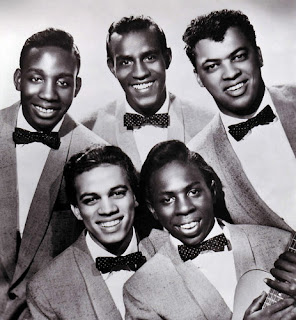Tuesday, July 31, 2012
Monday, July 30, 2012
Sunday, July 29, 2012
Saturday, July 28, 2012
Friday, July 27, 2012
Thursday, July 26, 2012
Wednesday, July 25, 2012
Tuesday, July 24, 2012
Monday, July 23, 2012
Sunday, July 22, 2012
Saturday, July 21, 2012
Friday, July 20, 2012
Boston Mayor Tom Menino Tells Chick-fil-A to Go Cluck Itself
"That’s the Freedom Trail. That’s where it all started right here. And we’re not going to have a company, Chick-fil-A or whatever the hell the name is, on our Freedom Trail,"
Love to you Curtis!
Soul's Gentle Genius
by Larry Rotter
July 19, 2012
Chicago
from NYTimes
Paralyzed when scaffolding fell on him during a show in Brooklyn in August 1990, Mayfield lingered for nine years — long enough to be honored by both the Rock and Roll and Grammy Halls of Fame — before succumbing, at the age of 57. Yet his songs may now be more a presence than at his death, embedded as samples in rap tracks, played at campaign rallies, featured in television commercials and broadcast in cover versions on radio.
Born and raised here, Mayfield was only 15 when his group, the Impressions, recorded its first hit with “For Your Precious Love,” subsequently covered by Otis Redding and the Rolling Stones. But his years of greatest acclaim were the 1960s and ’70s, when he wrote a remarkable string of hits that became anthems of the civil rights and black power movements: “People Get Ready,” “Move On Up,” “Keep On Pushing,” “It’s All Right,” “Choice of Colors” and “I’m So Proud” among them. “If James Brown was soul brother No. 1, then Curtis Mayfield was soul brother No. 2,” said the singer Jerry Butler, a childhood friend of Mayfield’s who performed with him in the Impressions and is now a Cook County commissioner.
But in contrast to Brown and some other stars of the era, like Wilson Pickett, Mayfield worked to remain low-key and understated, both in his lyrics and his singing style. The Irish singer Sinead O’Connor, who will be performing at the tribute show along with Mavis Staples, Aloe Blacc, the Roots and others, calls him “a genius of gentleness” who used “love and encouragement, not anger, to say important things.”
Mayfield’s vocal trademark was a high tenor that blended into falsetto. That not only gave him an air of vulnerability that greatly appealed to the women in his audience but also cushioned the sting of his pointed social and political commentary in songs like “We People Who Are Darker Than Blue” and “Pusherman.”
“The beauty of the vocal style is that the voice is tender and approachable, not aggressive or threatening, but at the same time the lyrics are powerful and politically charged,” said Aloe Blacc, a retro-soul singer who confesses to having studied Mayfield’s songwriting and singing in preparation for his own CDs. “It’s a very effective way to juxtapose content and texture. You’ve got a hooky, catchy pop sound, but by the time you absorb the lyrics and get to the chorus, you realize you have been baited and switched.”
In view of that trajectory it seems incongruous that younger pop music fans probably know Mayfield best for the soundtrack he wrote for the 1972 blaxploitation film “Superfly,” a template for that entire genre. (A stage musical is in the works.) Hip-hop artists have repeatedly sampled songs like “Freddie’s Dead” and “Superfly” and also enthusiastically adopted the whole cult of swagger and bling they saw on the screen — which, in the opinion of those who were close to Mayfield, constitutes a fundamental misreading of his intent in writing those songs.
When he first read the script, “Curtis felt ‘Superfly’ was a commercial to sell cocaine, and he wanted to turn that around,” Mayfield’s widow, Altheida, said in an interview. “That was his main purpose there, to say, ‘This is nothing pretty.’ You have to remember this man was raised poor, and that’s what he saw on the streets every day and could express in song.”
Even after he was disabled, Mayfield summoned the strength to record one final CD, “New World Order,” released in 1996, which contained the last of his great songs, “Here but I’m Gone.” That composition, frequently covered, is another chilling antidrug message song, wrapped in a hazy, dreamy wall of sound.
“By that point Curtis could only sing laying flat down” on his back, Mrs. Mayfield recalled, because only in that position did his diaphragm have sufficient flexibility and air. “He made a great effort, because he felt he was here to make a difference” and had to endure the pain.
“Curtis Mayfield had a long history of writing wonderful love songs, songs that you’d want to dance slow to in the basement, before he went off in that other direction,” Ms. Staples added, breaking into “Gypsy Woman” as an example. “And then all of a sudden he went and wrote some of the best message songs that could be out there. Curtis was a poet, his lyrics came straight from the heart and make me shiver.”
Among guitarists Mayfield, who also played bass, keyboards, drums and saxophone, continues to enjoy similarly high esteem. He never was one for pyrotechnics, but his light touch, airy sound and unusual chord choices gave him great stature among his peers, whom he further mystified by choosing an exotic-sounding open F-sharp tuning for his guitar instead of the standard E-A-D-G-B-E tuning.
“One day, cleaning out a closet, he’s like 8 or 9, Curtis finds this guitar and sits down on the side of the bed and starts fooling around with it,” Mr. Butler recalled. “He used to love playing boogie-woogie on the piano, and he learned to play that in F sharp, which meant he was playing on all black keys. That’s how he came about that unique sound on his guitar, because he tuned it that same way.”
Jimi Hendrix, born just a few months after Mayfield, may be the most notable of the many guitarists who studied Mayfield, though Eric Clapton also bears his mark. Hendrix had encountered Mayfield on the chitlin’ circuit in the segregated South in the early 1960s, sometimes even opening for the Impressions, and would later both cite Mayfield in interviews as one of his inspirations and occasionally work Mayfield songs like “Sometimes I Wonder” into jams during his own live shows.
Those performances mostly went undocumented, but Mayfield’s influence on Hendrix has fortunately been preserved on record. On “Electric Ladyland” he adopted both Mayfield’s falsetto and breezy guitar style, and also, according to Billy Cox, one of Hendrix’s former bass players, drew on Mayfield for recordings as early as “Little Wing” or “Castles Made of Sand” and as late as “Drifting.”
Mayfield’s influence on reggae may be even more pronounced, the result both of his ethos of self-respect and self-reliance and the vocal arrangements on his recordings. “The choreography that Curtis did on those Impressions records was absolutely brilliant,” Ms. O’Connor noted, “and when you listen to reggae that’s what you hear mostly, especially in the harmonies of the backing vocals.”
Bob Marley in particular was a Mayfield fan, and it shows in songs like “One Love,” which borrows so heavily from “People Get Ready” that it generated a copyright dispute. After discussions between the Mayfield and Marley estates, the songwriting credit on that song now reads “Bob Marley/Curtis Mayfield,” but Mayfield’s son Kirk, who supervises the estate’s song catalog, said that writing credits for “about six” of Marley’s songs are still being contested.
Mayfield was also an early exponent and practitioner of black capitalism in the music industry. Today hip-hop magnates like Jay-Z and Russell Simmons are common enough. But in the 1960s Mayfield’s decision to create a company of his own, Curtom, that would permit him to control his recordings and song publishing and own a recording studio, was highly unusual — as was his decision to locate the business in a prosperous white middle-class neighborhood on the North Side here.
Early on, Mr. Butler was Mayfield’s songwriting partner — perhaps most notably on “He Will Break Your Heart,” a No. 1 hit for Mr. Butler in 1960 that was later also a success for Tony Orlando and Dolly Parton — and initially was also his business partner. He recalled an episode that illustrates just how much his friend valued having autonomy and control.
“Curtis came to me one day and said, ‘Jerry, I want to buy you out,’ ” Mr. Butler, interviewed in his office at the County Building, recalled. “My feelings were hurt a little bit and I said ‘Why, what did I do?’ He said: ‘You didn’t do anything. I just want to own as much of me as possible.’ ”
Mr. Butler paused and laughed at the memory. “Curtis was self-contained and had it all going on,” he continued. “He was one bad little guy, man.”
Thursday, July 19, 2012
Wednesday, July 18, 2012
Tuesday, July 17, 2012
Sunday, July 15, 2012
Saturday, July 14, 2012
Friday, July 13, 2012
Wednesday, July 11, 2012
Subscribe to:
Posts (Atom)


















































